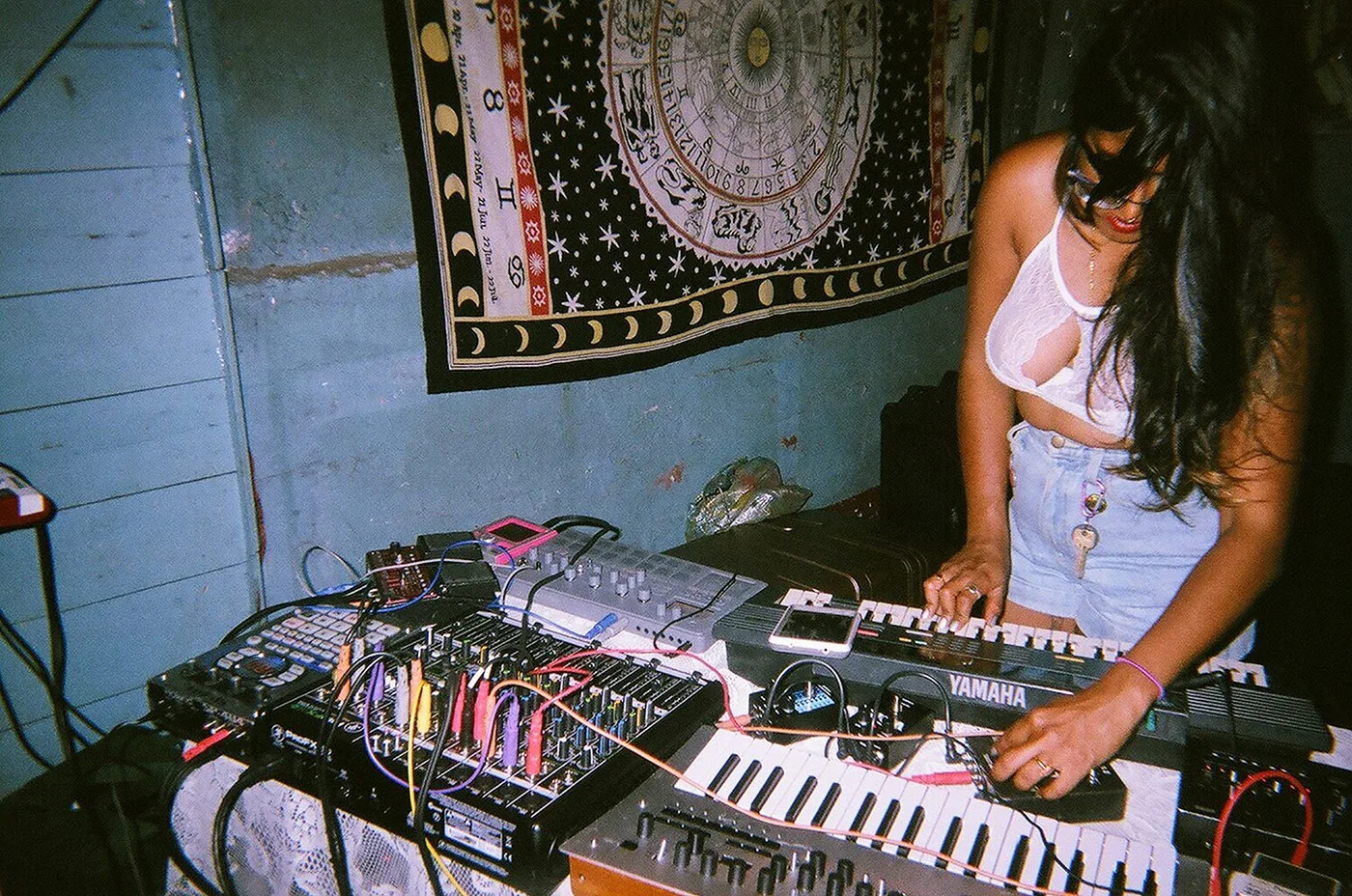
The Complexity of Care, Community and Comfort in Sharmi Basu’s Music
Music Interviews
Bay Area musician, educator, activist and artist Sharmi Basu works from the vantage point of perpetual experimentation and music’s inherently healing powers. After a prolific run of releases under various monikers and as a member of a variety of groups throughout the late 2000s and early-to-mid 2010s, Basu returned to releasing music after a roughly six-year hiatus in the face of, among other things, the continued political turmoil in the United States and the aftermath of the Ghost Ship fire in Oakland. Basu’s two releases of early 2022, a solo Beast Nest record titled Sicko on Ratskin Records and the Katla release as part of the duo Felidae on Full Spectrum Records, stem directly from this period of reflection and grieving, looking for peace, self-care and community connection in Basu’s present-minded approach to improvisation and experimental performance.

With a musical background based in DIY noise and free improvisation, Basu’s music promotes a present—and healing—focused artistic attitude. “Most of the narrative process for me with the music that I make is moving through these harsh emotions, trying to get to somewhere that feels like comfort or safety,” they say. On Sicko, this tension between discordant, avant-garde textures and Basu’s distinctive artistic mindset shines. Much of the record flows through burbling synthesis that traverses industrial, beat-driven textures and glistening ambience. In these abstract constructions, Basu probes the quasi-meditative practice of improvisation and performance for self-healing powers. “If you’re in a high-trauma space, you only exist in either the past or the future,” they say, ultimately finding “an escape from a really intensive oppression that can come from trauma or learned mental health reactions to harsh things” in their music’s willing affrontation to negativity and oppression.
“Most of the narrative process for me with the music that I make is moving through these harsh emotions, trying to get to somewhere that feels like comfort or safety.”
Outside of improvisation’s innate ritualism, the key to this view of music as medicine stems from a number of meaningful samples laced throughout Sicko, such as saxophone sounds from Basu’s friend Genox Devi or grainy interpolations of the musical numbers from the 1998 film Kuch Kuch Hota Hai, a longtime favorite of the artist’s. “I really like the stark difference between these raggedy, analog-sounding recordings [and] the crispness of certain synth sounds,” they say. “I think that juxtaposition feels really true to me in how we experience life … [I’m] finding spaces to put home into these sounds that can maybe be very lofty otherwise.”

The live improvisations of Felidae’s Katla find Basu working with fellow Bay Area musician Fanciulla Gentile (The Creatrix) in a purely improvisational space. Full of airy synthesizers and cosmic electronics, the project feels airier, more drawn toward cathartic wandering than the incisive experiments of Sicko. Felidae dates back to the early 2010s, serving as a continued space for Basu and Gentile to explorer their own interpersonal connection and shared position in an overly white, cis-male dominated experimental scene. “I think it’s for us; it’s for our relationship,” Basu says of the project’s focus. “It reminds me how much unspoken love and connection I have for this person … A lot of the time, we are on the same page about what’s going on around the project a lot of the time without ever talking about it.”
“It reminds me how much unspoken love and connection I have for this person …”
The phrase Katla has a double meaning for Felidae, translating from Icelandic to “kettle” and from Hindi to “slaughter.” “There’s this volcanic eruption that happens, then slaughter is the result,” Basu says of the album’s twin, side-long tracks. Recorded in the fall of 2020 at the height of the COVID-19 pandemic and the racial and social justice movements in the U.S. and beyond, Basu notes that the “Kettle” side looks to “the mounting pressure of capitalism, of white supremacy” while side two, “Slaughter,” explores the violence that lingers after the time bomb bursts. That the music sounds almost tranquil in its harmonious beeps and blips speaks to Basu’s grander philosophy of using music and art as a present-centric tool for connecting within community, processing the oppressive forces around us and accessing a type of reprieve, if only temporary and imagined.
Find Basu’s music on Bandcamp, and stay up to date on the artist by visiting their site, sharmi.info, or following them on Instagram @beast.nest.
Check out more features on Ratskin Records artists:
Patience and Peace: An Interview with Tyler Holmes
Staying in Tune to Survive: An Interview with Lexagon